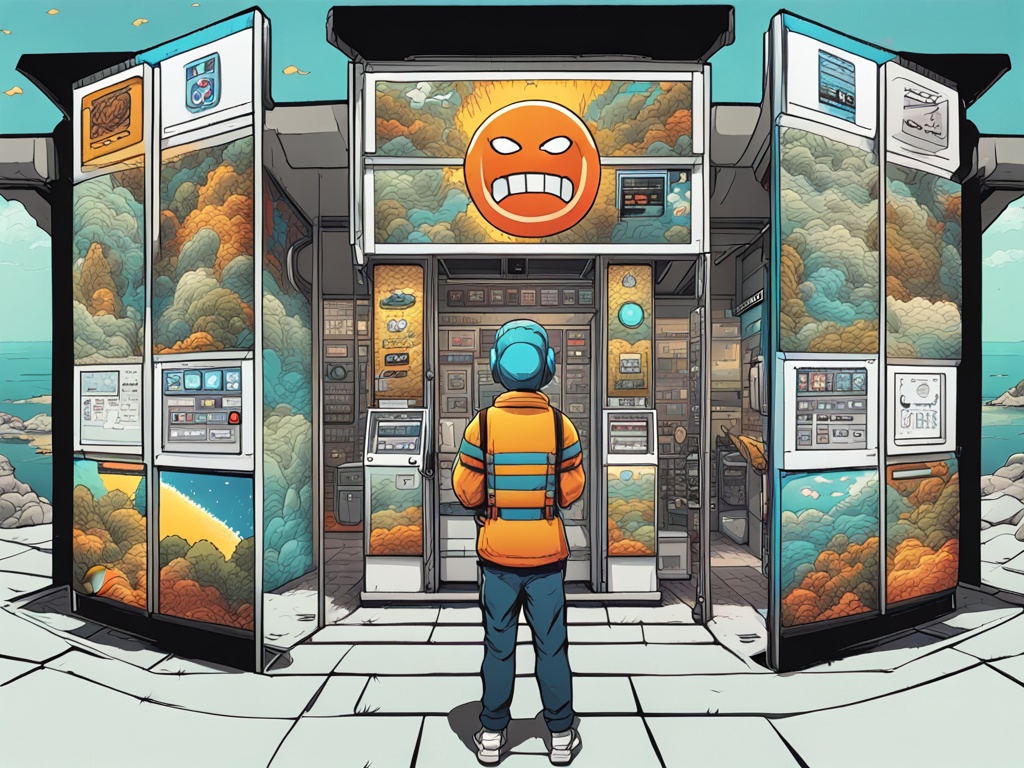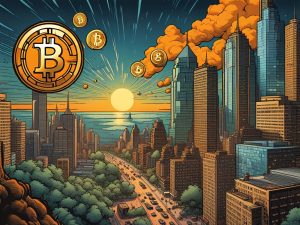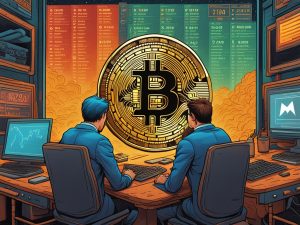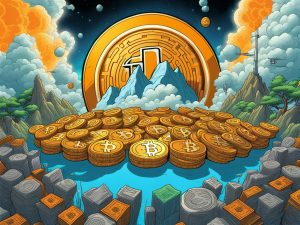Insights into NFT and Cryptocurrency Developments in South Korea 🚀
This analysis delves into the recent developments surrounding cryptocurrency and NFT operations in Jeju Province, South Korea, as well as the evolving regulatory landscape concerning NFTs. This year has brought significant changes that could reshape how these digital assets function within the region, particularly through initiatives like the Tamna Jeon program.
Understanding Jeju’s Local Cryptocurrency Initiative 🌐
Jeju Province initiated the Tamna Jeon program back in 2019 with the aim of boosting its local economy. This program allows residents to utilize rechargeable prepaid cards in various stores, effectively creating a cashless environment that encourages spending within the community. Both merchants and consumers are incentivized to participate, aiming to stimulate economic interaction.
This year, there have been updates to the original framework, particularly with the introduction of NFTs linked to this local currency. NFT holders are reportedly set to gain discounts on a variety of local tourist attractions. This initiative appears to blend digital innovation with traditional tourism, promoting the use of NFTs within a more localized economic context.
Interestingly, the province’s strategy may involve issuing these NFTs on a private blockchain network, indicating a tailored approach to implementing blockchain technology within public services. The connection between Jeju’s local stablecoin and NFTs reflects a strategic effort to leverage digital assets in enhancing local commerce and tourism.
Navigating South Korea’s NFT Regulation Landscape ⚖️
In South Korea, the world of NFTs has faced ongoing challenges due to stringent regulatory measures, particularly in the gaming sector. Many gaming developers have had to retract or completely abandon their plans for blockchain-based games, as regulators classify their NFTs as having monetary value.
Regulators have deemed that, since NFTs can be converted to cash, they equate to gambling, a sector that is heavily restricted in South Korea. This regulatory stance serves as a significant barrier to the entire gaming industry’s potential for innovation and development in the blockchain space.
Prospects for Future Regulation ⚡
The situation may be poised for a shift as the Korean Sport and Olympic Committee prepares to appoint a new leader. The committee has a significant influence on the regulatory approach toward various sports and entertainment sectors, including NFTs and blockchain technology. Lee Ki-heung, the current leader seeking reelection, has openly voiced concerns regarding governmental restrictions on NFT operations, calling them stifling to innovation.
-
Lee emphasized that:
- “Government regulations are inhibiting our ability to engage with NFT business or sponsorship.”
Lee’s commitment to advocating for regulatory changes indicates that this year could usher in a new era of possibilities for the NFT market in South Korea, potentially allowing for greater engagement in blockchain ventures across various sectors.
Looking Ahead at NFTs in South Korea 🔮
The future of NFTs in South Korea will likely revolve around how these regulatory changes manifest. If new leadership within the sports regulatory body can successfully persuade the government to adopt a more favorable approach toward NFTs, it may unlock numerous opportunities for both creators and consumers.
Furthermore, the developments in Jeju Province may serve as a model for other regions seeking to utilize blockchain technology for local development. The interplay between local currencies, NFTs, and tourism strategies suggest that digital assets can be more than speculative investments; they can drive genuine economic benefits at the community level.
Hot Take: The Future Within Reach? 🔥
As the landscape continues to evolve, it’s crucial to stay informed about the interplay between regulation and innovation in the NFT space. This year holds promise for potential advancements, particularly if the voices advocating for change gain traction within regulatory circles. Both the initiatives in Jeju Province and emerging conversations around NFT regulations indicate that if managed well, a future where NFTs play a significant role in South Korea’s economy may not be far off.
In navigating these complexities, stakeholders, including developers, regulators, and local businesses, will need to engage thoughtfully and collaboratively. The road ahead may be winding, but the signals point towards a transformative phase for the NFT market in South Korea.
Sources:





 By
By
 By
By
 By
By
 By
By
 By
By